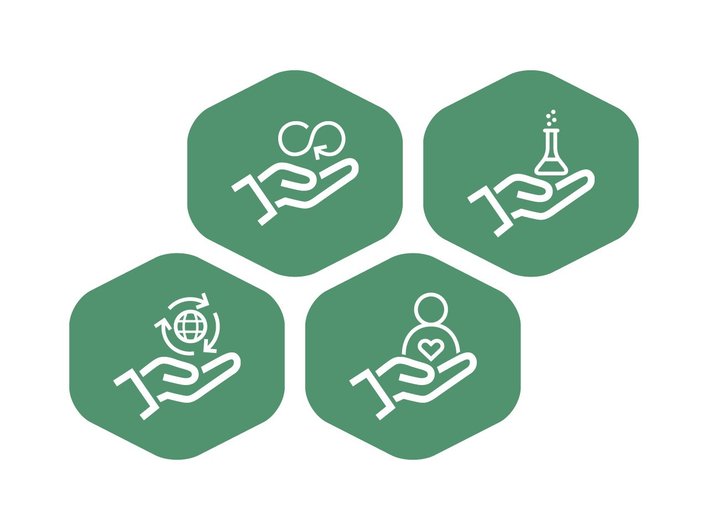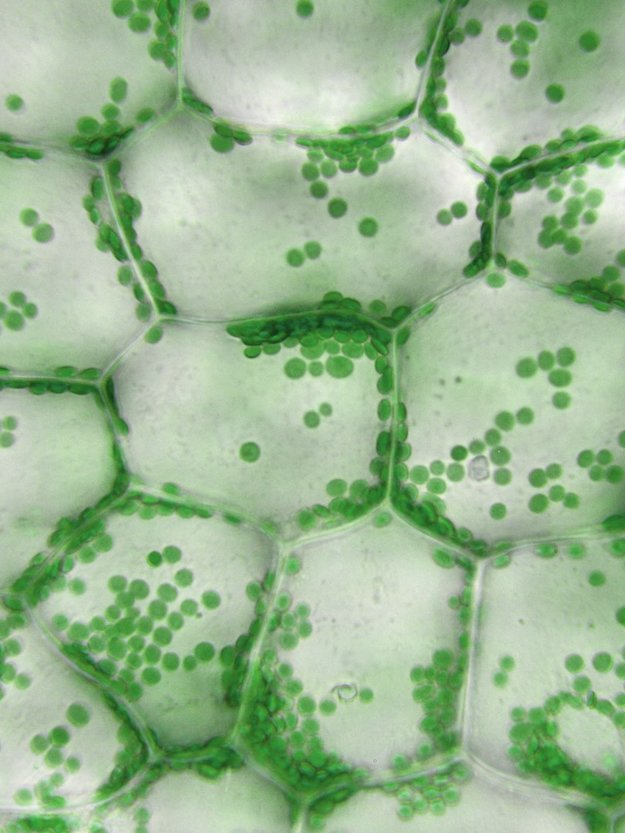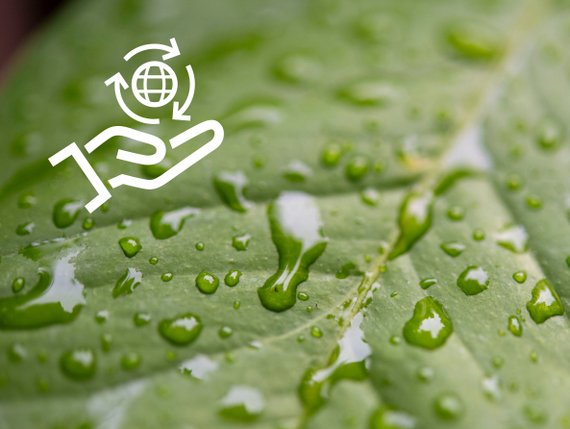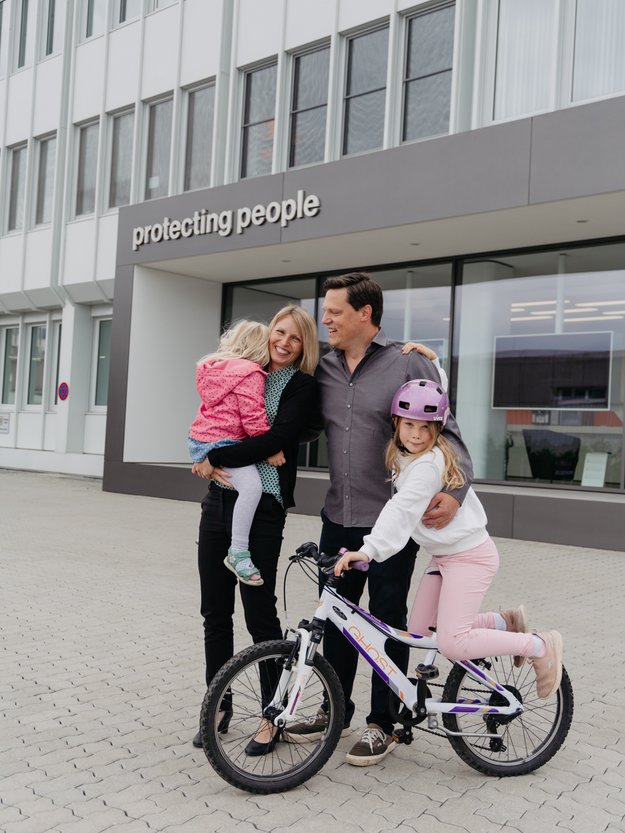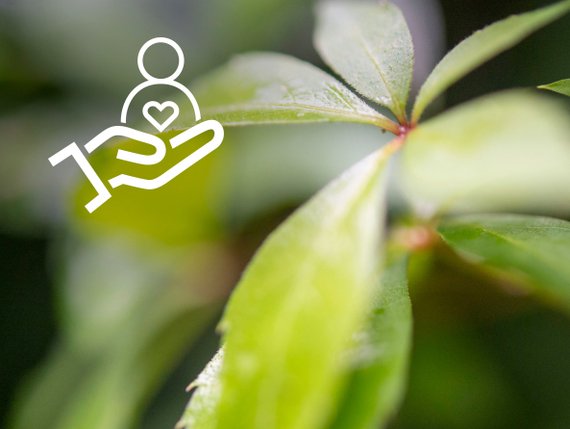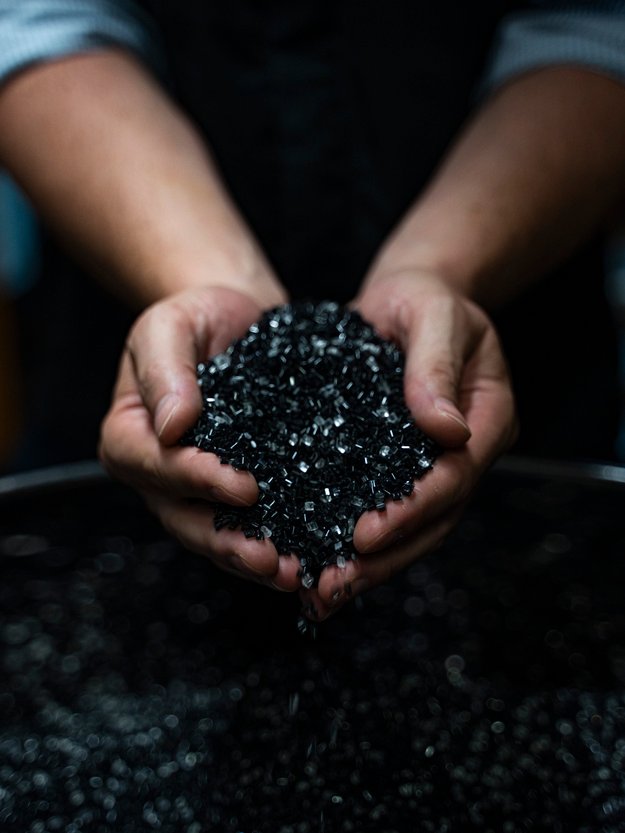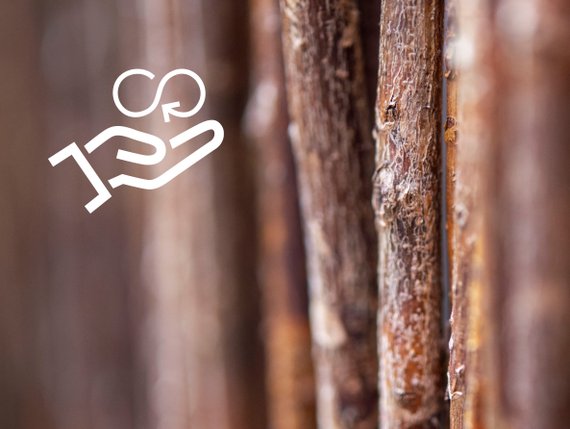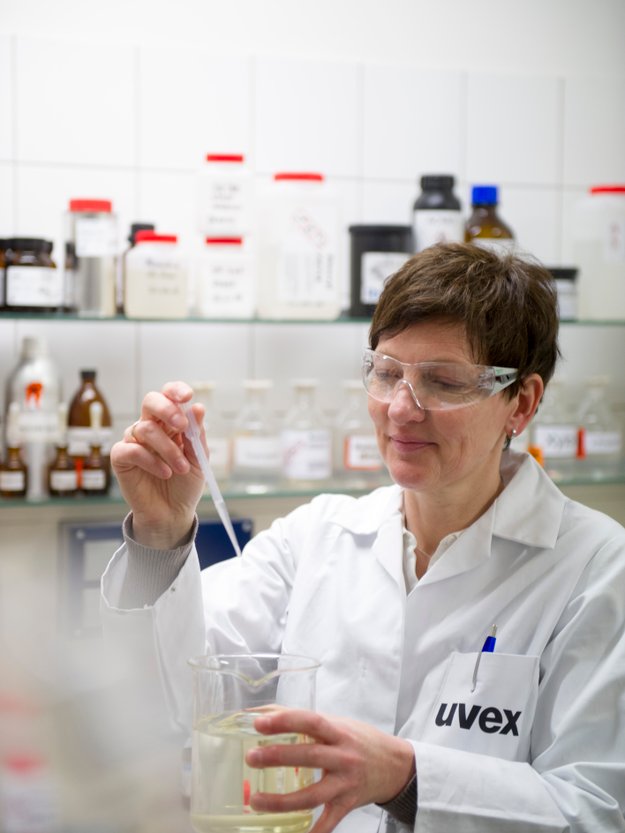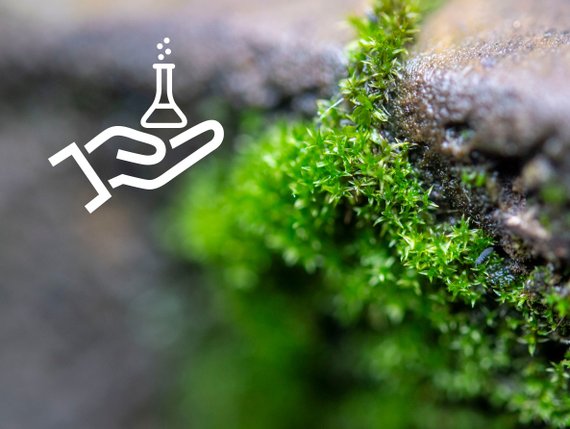Sustainable impact from the four focus areas
To further develop its sustainability goals, the uvex group set about determining exactly how the company can most effectively protect people and nature, as well as defining the measures needed to achieve this. Using a materiality analysis, the four most relevant focus areas were specified, in turn helping the uvex group to determine how sustainability can be brought to life throughout the company both today and in the future.
GRI 102-44, 102-47, 103-1, 103-2, 103-3, 205-2, 302-4, 302-5, 305-5
Our goals in detail
Quantifiable, group-wide goals were developed for the respective focus areas to ensure that they are consistently anchored in our strategic approach. In defining our climate protection targets, we shall adopt science-based approaches. When it comes to achieving these climate protection targets, the uvex group has established a clear target achievement hierarchy. The top priority is the avoidance of greenhouse gases: where it proves impossible to avoid greenhouse gas emissions, it is important to ensure that these are kept to an absolute minimum. Moreover, any emissions that are ultimately unavoidable should be offset by way of certified climate protection projects.
Ecological transformation
- Climate neutrality by 2045 for Scope 1-3
- Development of science-based climate protection targets by 2024 (reduction of Scope 1 and 2 greenhouse gas emissions by 42% by 2030 against baseline year 2021) (SBTI)
- Reduction of absolute waste generation through prevention, reduction and recycling by 15% by 2030 against baseline year 2020/2021
- Reduction of water consumption by 10% by 2030 against baseline year 2020/2021
- Reduction of hazardous waste by 10% by 2030 against baseline year 2020/2021
- Reduction of scrap rates to below 5% by 2030 against baseline year 2020/2021
Social responsibility
- Achieve a target NPS score of > 40 by 2026
- Register an employee retention score of at least “good” by 2026
- Implementation of sustainable supplier management processes with a focus on climate compatibility, social aspects and transparency by 2026
- Achieve a training rate on sustainability issues of at least 90% of the workforce by 2025
The circular economy as a driver of innovation
- Increasing the overall share of sustainable materials (bio-based materials or recyclate) to 20% by 2030 against baseline year 2020/2021
- Exclusive use of recycled or recyclable materials for packaging by 2030 against baseline year 2020/2021
- Implementation of recyclable product solutions (Design for Recycling, Retain Product Ownership, Product Life Extension) by 2026.
Commitment to not harm the environment or human health
- Certification of all European production sites in accordance with ISO 14001 by 2026
- Further development of hazardous substance management processes and continuous reduction in the use of defined hazardous substances
- Monitoring the number of reports evidencing the presence of hazardous substances
